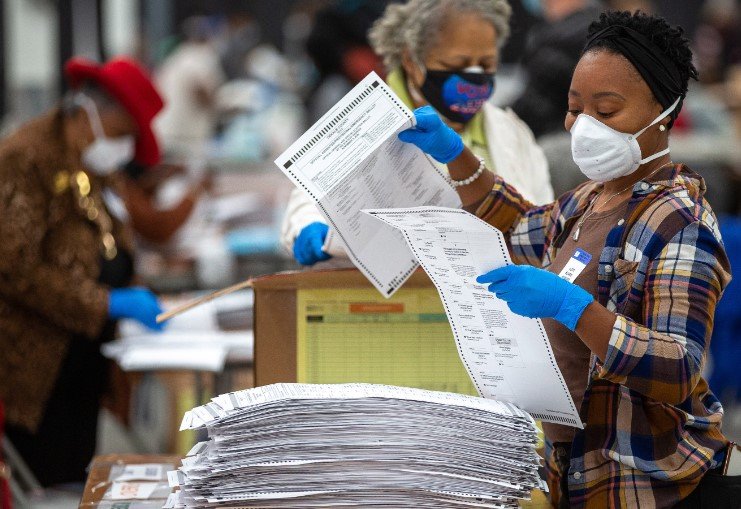Georgia’s status as a battleground state has led to intense partisan skirmishes over the control and operation of local elections boards. The state’s political landscape has become increasingly contentious, with both major parties vying for influence over the electoral process. These disputes have raised concerns about the integrity and fairness of elections in Georgia, as well as the potential impact on voter confidence and participation.
Rising Tensions in Georgia’s Political Arena
The political climate in Georgia has become highly charged, with both Democrats and Republicans seeking to assert their dominance. The state’s shift from a reliably red state to a battleground has intensified the competition, leading to frequent clashes over election-related issues. These skirmishes often involve disputes over the appointment and removal of elections board members, as well as disagreements over voting procedures and regulations.
One of the key points of contention is the appointment process for elections board members. Both parties have accused each other of attempting to stack the boards with partisan loyalists, undermining the boards’ impartiality. This has led to a series of legal battles and public confrontations, further polarizing the state’s political landscape.

In addition to the appointment disputes, there have been numerous disagreements over voting procedures. Issues such as voter ID requirements, absentee ballot regulations, and early voting periods have all been hotly debated. Each party has accused the other of trying to manipulate the rules to gain an advantage, contributing to the overall atmosphere of mistrust and suspicion.
Impact on Voter Confidence
The ongoing partisan skirmishes have had a significant impact on voter confidence in Georgia. Many voters are concerned that the disputes are eroding the integrity of the electoral process, making it difficult to trust the outcomes of elections. This lack of confidence can lead to decreased voter turnout, as individuals may feel that their votes do not matter or that the system is rigged against them.
Efforts to address these concerns have been met with mixed results. Some initiatives aimed at increasing transparency and accountability in the elections process have been implemented, but their effectiveness remains to be seen. Additionally, public education campaigns have been launched to inform voters about their rights and the measures in place to ensure fair elections. However, overcoming the deep-seated mistrust will likely require sustained efforts and cooperation from both parties.
The partisan nature of the skirmishes has also led to increased polarization among the electorate. Voters are more likely to view election-related issues through a partisan lens, further entrenching their positions and making compromise more difficult. This polarization can hinder efforts to implement meaningful reforms and improve the overall functioning of the elections system.
Looking Ahead
As Georgia continues to navigate its status as a battleground state, the importance of fair and transparent elections cannot be overstated. Ensuring that the elections boards operate impartially and that voting procedures are equitable is crucial for maintaining voter confidence and participation. Both parties must work together to address the underlying issues and find common ground, rather than allowing partisan skirmishes to dominate the political landscape.
Moving forward, it will be essential to monitor the impact of recent changes to the elections process and make adjustments as needed. This may involve revisiting controversial policies, such as voter ID requirements and absentee ballot regulations, to ensure that they do not disproportionately affect certain groups of voters. Additionally, continued efforts to increase transparency and accountability will be vital for rebuilding trust in the system.
Georgia’s status as a battleground state has led to intense partisan skirmishes over the control and operation of local elections boards. These disputes have raised concerns about the integrity and fairness of elections, as well as the potential impact on voter confidence and participation. Addressing these issues will require cooperation and compromise from both parties, as well as a commitment to ensuring that the electoral process remains fair and transparent.

Comments